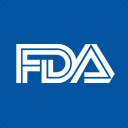 How do you determine if a procedure was successful? Patient-reported outcomes (PRO’s) are increasingly important in evaluating results of treatment.
How do you determine if a procedure was successful? Patient-reported outcomes (PRO’s) are increasingly important in evaluating results of treatment.
 How do you determine if a procedure was successful? Patient-reported outcomes (PRO’s) are increasingly important in evaluating results of treatment. Given that the patient must be considered as the center of any healthcare system, PRO’s also impact physician evaluation. This can be a difficult new reality for physicians who are used to being evaluated only on clinical outcomes.
How do you determine if a procedure was successful? Patient-reported outcomes (PRO’s) are increasingly important in evaluating results of treatment. Given that the patient must be considered as the center of any healthcare system, PRO’s also impact physician evaluation. This can be a difficult new reality for physicians who are used to being evaluated only on clinical outcomes.
Clinical Outcomes, PRO’s and ORO’s
In most cases clinical outcomes reflect measurement of physiological and biomedical parameters – e.g. tumor size, survival rate, blood chemistry. The person reporting the outcome impacts classification if it is observation based. If the clinician or other caregiver observes the patient then the outcome is said to be an “observer reported outcome” (ORO).
For example, if the patient is revealing in a survey he/she is experiencing morning stiffness then it is considered a PRO but if the clinician asks the patient how they feel in the morning and they report stiffness then it is considered to be an ORO. According to the US-FDA, a PRO is any report of the status of a patient’s health condition that comes directly from the patient, without interpretation of the patient’s response by a clinician or anyone else.[1]
Getting a Bigger Picture
PRO’s are gaining importance in the healthcare world. This is particularly true for diseases where the ultimate goal of treatment may not be survival on its own (e.g. cancer), but survival with a good quality of life. Some of the information that forms the full picture is only available from the patient and collecting it is important to improving healthcare.
Consider a scenario where an individual is diagnosed with prostate cancer. While the tumor is not particularly aggressive, the patient decides on surgery. One possible outcome is that the tumor is completely removed with clear margins. In order to achieve the result given the size and positioning of the tumor, however, incontinence and impotency resulted and quality-of-life reported by the patient is poor. In another possible outcome, the tumor is not completely removed but nerve damage is more limited and quality-of-life reported by the patient is higher.
Which is the better outcome?
Collecting patient reported outcomes is important to fully evaluating the treatment and how it may impact provision of treatment to future patients.
Managing Patient Reported Outcomes
Collecting PRO’s makes sense but actually doing it can be challenging. Creating surveys and collecting and analyzing results manually is too costly for many organizations to consider. Having custom websites created to manage PRO’s reduces manual effort but is also very costly. Fortunately there are an increasing number of inexpensive “patient portal” services that provide a secure, efficient way to collect PRO’s including Quality of Life, Screening for Distress and other standard measures.
When considering options for PRO management, look for the following key features:
- Web-based and accessible using a computer, tablet or mobile device
- Strong consent management and security controls built-in
- Convenient login options (e.g. use email address or existing trusted account)
- Dashboard landing page that shows surveys/next steps
- Captures baselines and provides trend visualizations back to patient and staff
- Automated reminders for due/missed survey via email or SMS (text)
- Follow-up tasks automatically generated to nursing where scores are low
- Easy-to-use survey creation tools
Despite our best attempts at objective observation, no one but the patient can tell us how they feel. While we may not always be able to improve a patient’s quality of life, acknowledging and validating concerns through a PRO process can help them feel better about the treatment received.






